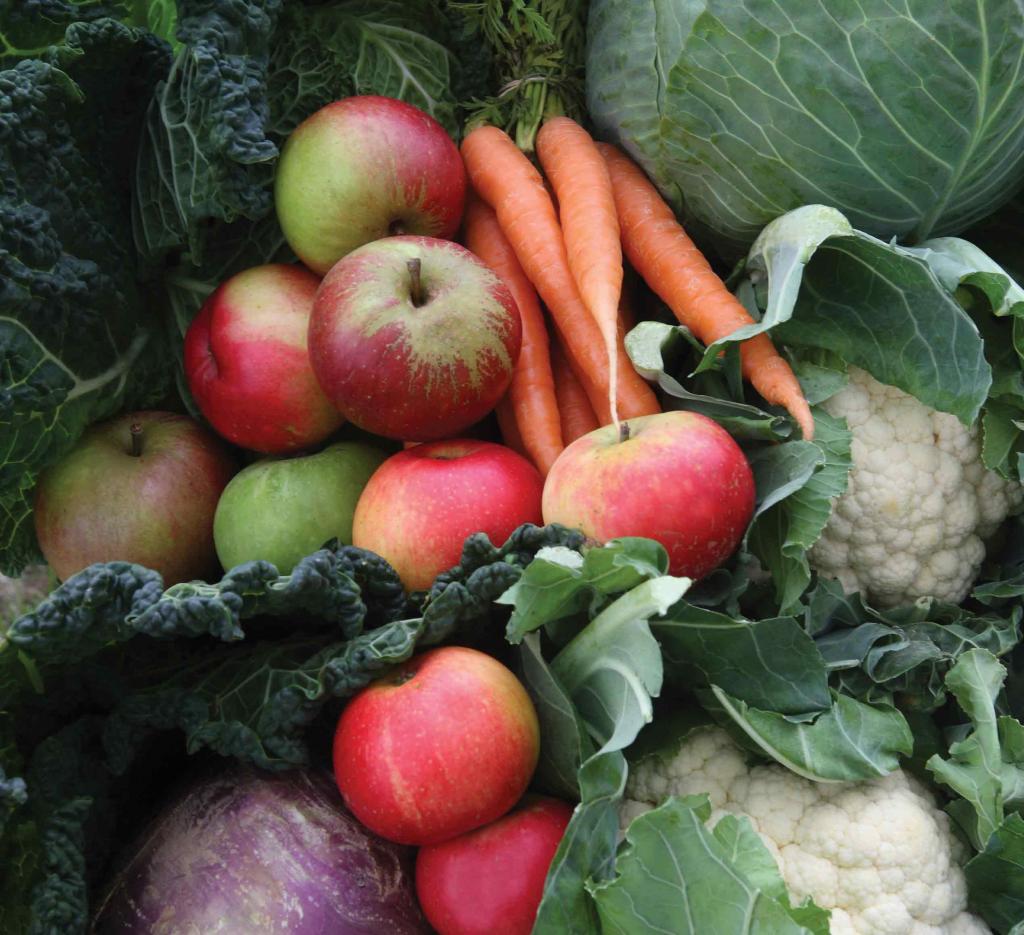Some of the things they said were good for us...

Some of the things they said were good for us
Five a day is good, of course, and if you manage that many portions of fruit and vegetables, you’re doing better than most people – but ten portions are even better. Imperial College London analysed the eating habits of two million people, and concluded that eating 800g of fruit and veg a day was associated with a 31% reduced risk of premature death, while eating 200g a day (2.5 portions) was associated with a 15% reduced risk. The five-a-day target was chosen largely because it was thought to be achievable, but only about one in four British adults hit it.
Screen time is a worry for parents, but a study this year found that watching TV, playing video games and using smartphones can be good for teenagers’ emotional well-being – up to a point. University of Oxford researchers surveyed 120,000 British 15-year-olds and found that for smartphones and video games, well-being “peaked” at about two hours’ screen time a day – any more than that, and the good effects started to dip. With computers, it peaked at just over four hours.
Vitamin D is best known for helping us keep our bones and teeth strong, but it may also help ward off colds, according to a study at Queen Mary University of London. The meta-analysis of 25 trials, involving 11,000 patients worldwide, revealed that a daily dose of vitamin D was associated with a 10% reduced risk of common respiratory tract infections; among those with the lowest baseline vitamin D levels, the risk was halved.
Being born first gives children the edge over their siblings, at least when it comes to academic achievement. The University of Edinburgh examined data on almost 5,000 American children, who were tracked from birth to 14 years old, and found that first-born siblings consistently did better in comprehension, maths and reading tests. While parents tended to offer emotional support to all their children equally, they’d often provided the older ones with more mental stimulation in the early years, the study added.
HRT has had a bad press over the past decade or so: in the early 2000s, a major study in the US found a link between taking hormone replacement therapy for five to seven years and a raised risk of cancer and stroke. As a result of such fears, millions of women opted not to have the treatment – and to endure the hot flushes, disrupted sleep and other symptoms of menopause instead. Yet a new follow-up study, involving most of the same 27,000 people, found no difference in mortality between the people who had HRT and the people who were given a placebo. The treatment offers some protective effects against fractures and diabetes, but also slightly raises the risk of breast cancer.
Aspirin is believed to ward off heart disease when taken regularly in low doses; in May, we learnt that it might also reduce the risk of some forms of cancer. A study involving more than 130,000 people in the US found that those who took aspirin regularly were 30% less likely to die of colon cancer. In women it was associated with a reduced risk of dying from breast cancer. Yet even in low doses, aspirin can have a harmful effect on the stomach, particularly among older people. No one should take it regularly without talking to their GP.
Coffee has seen a transformation in its reputation in recent years – and was given yet another boost in 2017 with the publication of a major new study, which found that people who drink up to three cups of coffee a day have a lower risk of dying from stroke, diabetes and cancer, as well as heart, kidney and respiratory diseases. The long-term study, involving almost 186,000 people in America from various ethnic backgrounds, did not establish that an ingredient in the brew has health-boosting properties. Even so, the authors’ theory that coffee must be having some kind of direct impact was backed up in November, when the Universities of Southampton and Edinburgh published a review of previous research. They concluded that three or four cups a day cut the risk of premature death by 17%, and that even seven cups a day lowered the risk by 10%. However, official advice is still to drink no more than four cups a day.
....and some of the things we were advised to avoid

Candles may be hygge, but are they healthy?
Lighting candles is, as the Danes put it, very hygge – but even if it’s good for your soul, it may not be good for your lungs. A study in the US found that candles are a significant source of indoor airborne pollution, raising levels by about 30%. Frying food is also a major source – but smoking is the biggest.
Traffic, and its associated pollution, was a focus of increasing concern this year. In January, researchers found evidence that people who live close to busy roads are slightly more likely to develop dementia – raising speculation that toxins in exhaust fumes have a harmful effect on the brain. In April, a team at the University of Edinburgh found evidence that ultra-fine particles, like those emitted by diesel cars, can enter the bloodstream, build up in blood vessels – and remain there for months. A few weeks later, a World Health Organisation report estimated that 25.7 per 100,000 deaths in the UK are attributable to pollution, compared to 12.1 in the US and just 0.4 in Sweden.
Diet drinks have been linked to poor health outcomes – and may not even do what they’re supposed to do. Researchers in the UK and Brazil analysed various trials on the subject and concluded that while diet drinks contain no sugar, and are all but calorie-free, there is no strong evidence that they help people lose weight (or stop them getting fat). A few months later, a small – and far from conclusive – study found that people who drink artificially sweetened drinks on a daily basis have a significantly elevated risk of stroke. Although they had not established a causative link, the study speculated that artificial sweeteners might have a harmful effect on blood vessels.
Playing football could raise the risk of dementia, if you head the ball too often. In a small study at University College London, researchers performed post-mortems on six former professional footballers with a history of dementia. All their brains showed signs of Alzheimer’s, and four were found to have chronic traumatic encephalopathy, a pattern of damage linked to repeated blows to the head. In their careers, the players would have suffered repeated sub-concussive blows to the head.
Over-the-counter painkillers do little to relieve the agony of back ache, and could just leave users with a bad gut. A review of 35 trials into non-steroidal anti-inflammatory drugs (NSAIDs) concluded that the relief of neck and lower back ache they offered was “arguably not of any clinical significance”. Moreover, patients who take them are at significantly increased risk of stomach ulcers and other gastrointestinal problems. But that’s not all: a study in March added to a growing body of evidence that suggests ibuprofen and other NSAIDs are bad for the heart. The study, of 29,000 people who’d suffered out-of-hospital cardiac arrests in Denmark, showed that taking the drugs was associated with a 31% increased risk of cardiac arrest.
Obesity has never been a condition to aspire to – but some studies have found that people who are overweight are actually less likely to die early than those of a healthy weight. However, the so-called obesity paradox was undermined in April by a study from Harvard and Boston Universities. This looked at data on 225,000 people, whose body mass index had been monitored for 16 years. The team then looked at their death rates from 12 years of follow-up data, and found that those who had been either obese or overweight had an elevated risk of dying of any cause, as well as specific causes, such as heart disease.
Sugar doesn’t just rot your teeth, make you fat and raise your risk of heart disease: it may also make men depressed. Researchers from University College London looked at sugar intake and common mental health problems among 5,000 men and 2,000 women recruited to the Whitehall II study in the 1980s, and found that men with the highest intake of added sugar – more than 67g a day – had a 23% increased chance of suffering a common mental disorder after five years than those who consumed the lowest levels (less than 39.5g). And it did not seem to be merely that they were “comfort eating” sweet foods because they were already depressed.
selection of scientific theories and discoveries from 2017
Elephants rarely sleep
Elephants are said never to forget. It turns out they also rarely sleep: earlier this year a study concluded that they need only two hours sleep a night, less than any other mammal. And when they are on the move, they can go 48 hours without any shut-eye (and without having lie-ins later to compensate). The research involved only two elephants, however, which were tracked for 35 days.
The hottest planet
A hellish world, hotter than the surface of some stars, was discovered this summer. Named Kelt-9b and lying 620 light years away in the constellation of Cygnus, the unfortunate gas giant is so close to its own star, which is twice as hot as our Sun, that its orbit takes just 1.5 Earth days. With temperatures reaching a blistering 4,300°C, it is the hottest planet yet found.
Pain worse than labour
They say there’s no pain comparable to that of childbirth – but in July, a study threw up a possible exception: kidney stones. Urologists questioned 19 women who had experienced labour and kidney stones, and 12 of them said that kidney stones were more painful.
Voracious spiders
Spiders eat up to 800 million tonnes of prey a year, making them among the world’s most voracious predators, according to an analysis published in March. (Humans eat about 400 million tonnes of meat and fish each year.) And though they eat mostly insects and insect-like hexapods, some feast on frogs, lizards and even small mammals. We should be grateful for their appetite: it makes an essential contribution to maintaining an “ecological balance”, researchers said. And of course, spiders are also prey themselves, as a key part of the diet of up to 5,000 bird species.
Coral in peril
Alarm bells sounded about the Great Barrier Reef – the world’s largest living structure – this year, after a study found that it has suffered unprece-dented damage. Data from aerial and underwater surveys found that a heatwave in 2016 had triggered the most damaging and widespread coral bleaching event on record. Almost 50% of the reef is “extremely” bleached, according to the study in Nature, and the bottom third is the only part that has escaped significant bleaching.
Our oldest ancestor
With a wrinkled, sack-like body, a crown-like mouth and no sign of an anus, Saccorhytus coronarius – a microscopic fossilised organism found in China – doesn’t look exactly human. But we learnt in January that it may be our oldest ancestor. The prehistoric sea creature is a primitive member of the deuterostome group – which led to fish, and ultimately to us – and, at 540 million years, it is the oldest example ever found.
A new superpower
Naked mole-rats – already known to be impervious to many forms of pain and resistant to cancer – were found to have a new superpower in May: the creatures, which live in overcrowded underground burrows, can survive without oxygen for up to 18 minutes. Most mammals need oxygen to turn glucose into the energy that powers their major organs, but mole-rats have a back-up: if there’s no oxygen, they use fructose in their bodies. Unlike glucose, fructose can be metabolised without oxygen (for a while, at least).
Fish oil myth
If you thought taking fish oil during pregnancy might boost your baby’s brain power, forget it: a study in April found that it doesn’t work. The team gave around 1,250 pregnant women supplements rich in docosahexaenoic acid, and a similar number were given a placebo. Seven years later, there was no evidence the fish oil had made a difference to their offspring’s IQ.
The last survivors
When the nuclear war has been lost and the asteroid has struck, when our oceans are dead and even the cockroaches have given up the ghost, one creature will live on: the tardigrade. In July, a team noted that it was hard to imagine a plausible scenario in which these resilient tiny creatures (pictured) would be wiped out. You would have to literally boil the oceans dry to completely kill them, said David Sloan, an astrophysicist at the University of Oxford – “not a simple task”.
No sex please
Americans are having a lot less sex than they used to: according to an analysis this year, the average adult had sex 53 times in 2014, down from 60-62 times in the 1990s.


